Graham Reid | | 4 min read
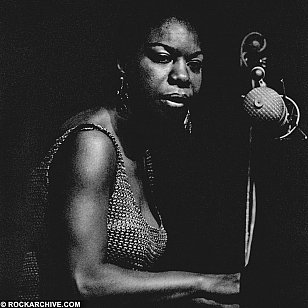
In 1964 before a predominantly white, liberal and monied audience at New York's Carnegie Hall, Nina Simone announced her song Mississippi Goddamn.
It had been written quickly some weeks previous and she'd played it to a small audience in a Greenwich Village club, but here it became wide currency.
She referred to it as a show tune, “but the show hasn't been written for it yet”.
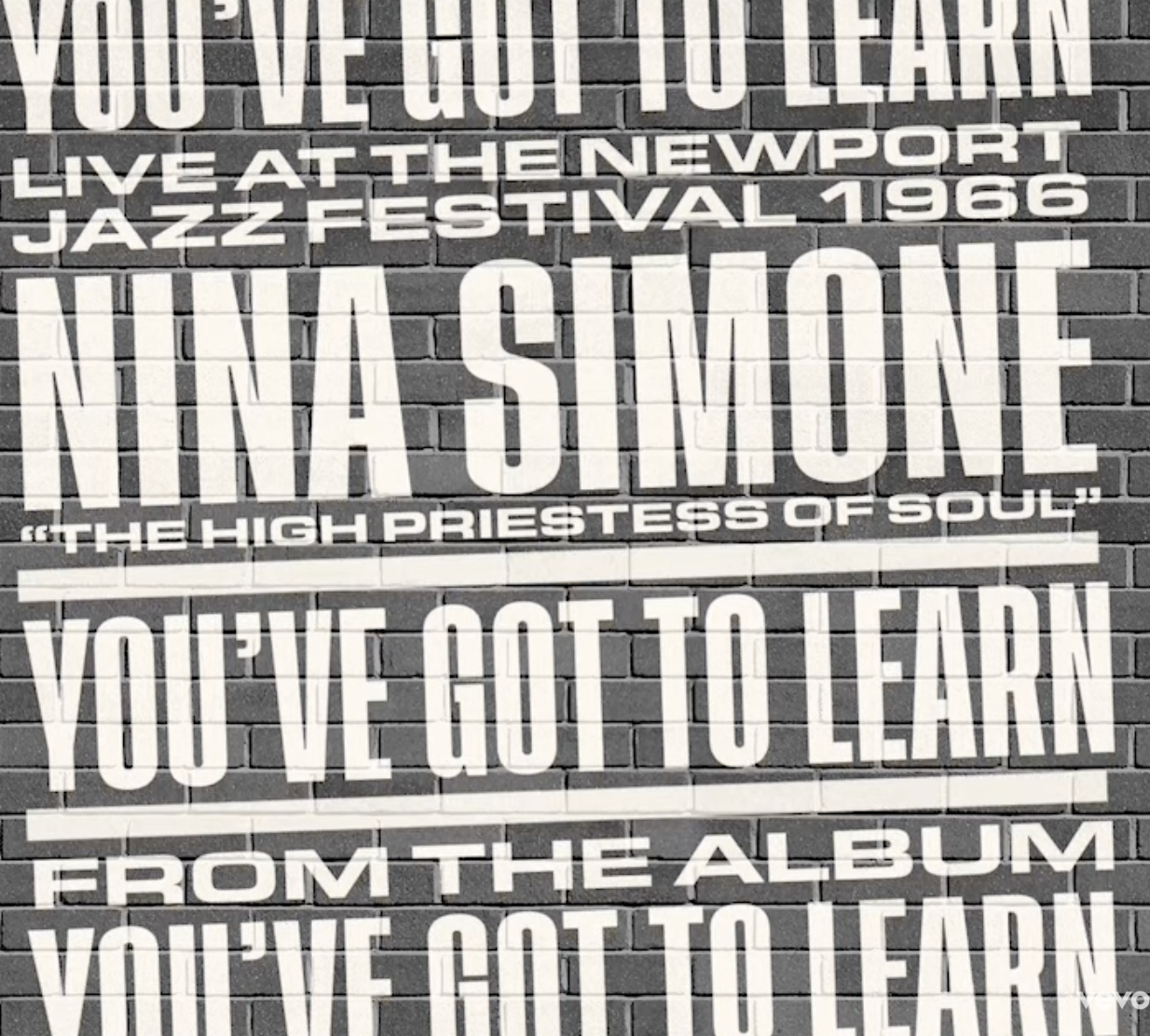 It wouldn't be written by the Gershwin's whose I Loves You Porgy from their Porgy and Bess musical she'd had a hit with six years previous.
It wouldn't be written by the Gershwin's whose I Loves You Porgy from their Porgy and Bess musical she'd had a hit with six years previous.
It would be a show written in blood on the streets of Southern states, and the quill had been dipped.
Over a jaunty piano figure she gets to it straight away, “Alabama's got me so upset” she sings, referring to the infamous church bombing the previous year in Birmingham – which Martin Luther King described as the most thoroughly segregated city in the United States” – which killed four black girls.
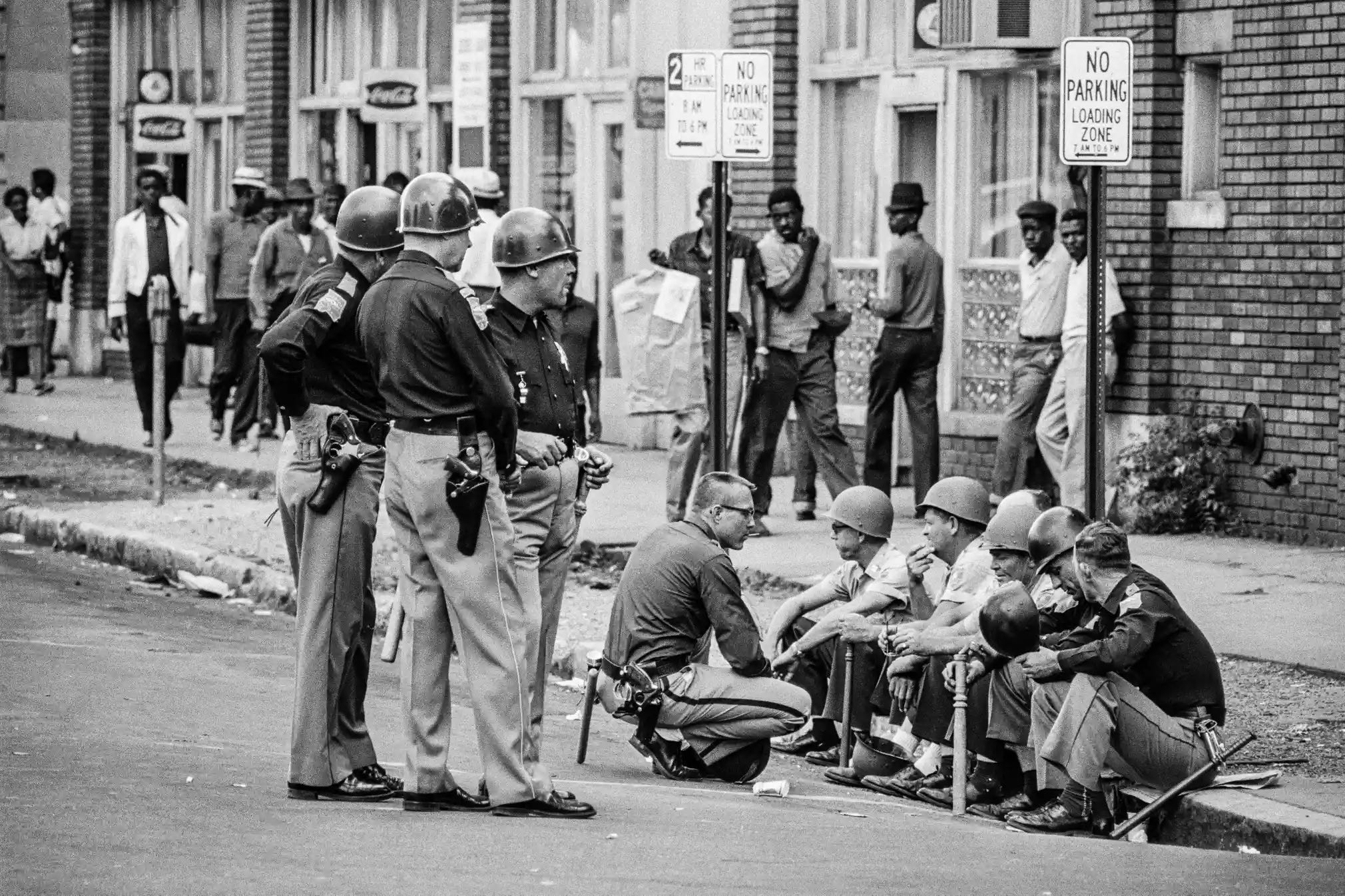 Tennessee has made her lose her rest “and everybody knows about Mississippi, goddamn”.
Tennessee has made her lose her rest “and everybody knows about Mississippi, goddamn”.
But she's just softening her audience (“can't you feel it, it's all in the air, somebody say a prayer”) for what follows: she goes back to the days of slavery for “hound dog on my trail” which has contemporary resonance because of the use of police dogs against civil rights protesters in Birmingham; “school children sitting in jail” (kids had been locked up as part of the crackdown) and “I think every day's gonna be my last”.
But it gets even darker and more personal: “Lord have mercy on this land of mine. We all gonna get it in due time. I don't belong here, I don't belong there. I've even stopped believing in prayer”.
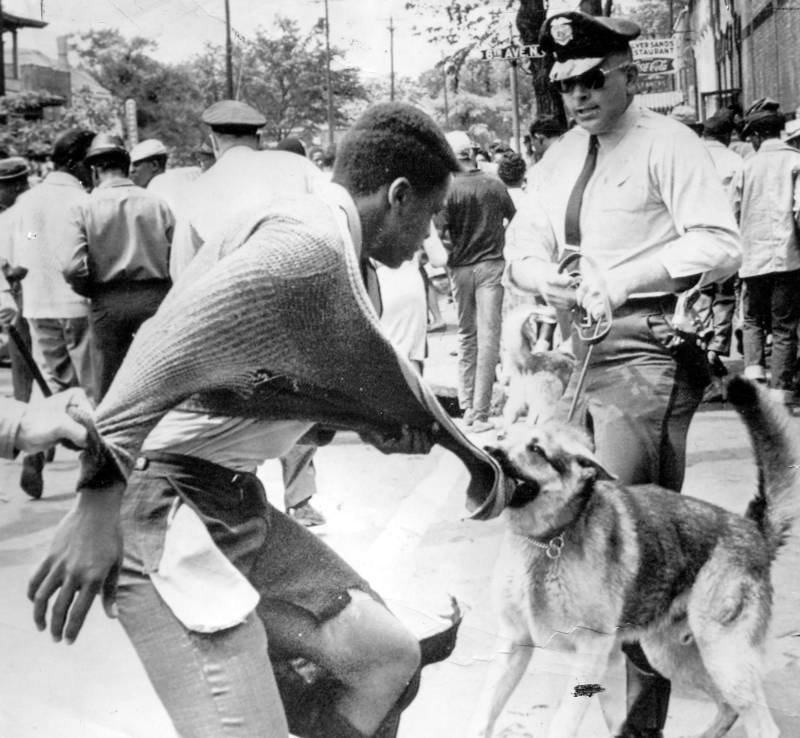 Four years later after the murder of Martin Luther King, the Black Power leader Stokely Carmichael said, “Now that they've taken Dr King off, it's time to end this non-violent bullshit.”
Four years later after the murder of Martin Luther King, the Black Power leader Stokely Carmichael said, “Now that they've taken Dr King off, it's time to end this non-violent bullshit.”
King had seen it coming: “Maybe we just have to admit that the day of violence is here, and maybe we just have to give up and let violence take its course. The nation won't listen to our voice. Maybe it will heed the voice of violence.”
Simone was moving there, prayer is not enough and it isn't working, whites telling backs to just slow down in their demands: “I've been there, so I know
They keep on saying 'Go slow!'. But that's just the trouble . . .”
Then she punches the song home with the political and the personal: “Picket lines, school boycotts. They try to say it's a communist plot. All I want is equality for my sister my brother my people and me. Yes, you lied to me all these years. You told me to wash and clean my ears and talk real fine just like a lady and you'd stop calling me Sister Sadie”.
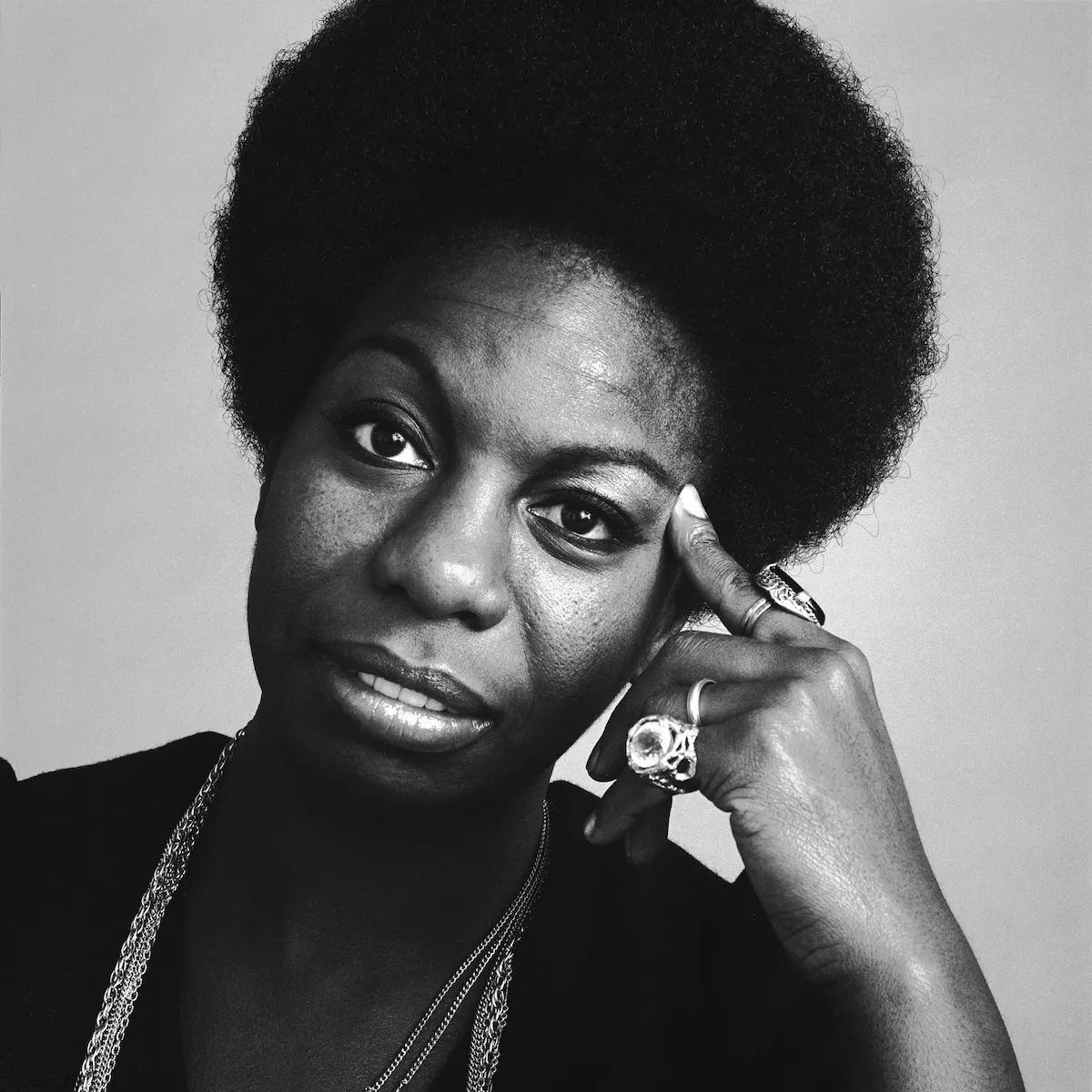 Too late, Simone had turned and there was no going back for her, she was an activist now and taking her anger to wherever it would be heard: “Oh but this whole country is full of lies. You're all gonna die and die like flies. I don't trust you any more . . . You don't have to live next to me, just give me my equality”.
Too late, Simone had turned and there was no going back for her, she was an activist now and taking her anger to wherever it would be heard: “Oh but this whole country is full of lies. You're all gonna die and die like flies. I don't trust you any more . . . You don't have to live next to me, just give me my equality”.
Simone would perform the song many times, notably in 1966 at the Newport Jazz Festival where she played a remarkable half hour set which touched on the many moods and the musical styles – gospel, blues, jazz, showtunes – at her command.
Simone was as uncompromising in performance as in her life and the recently discovered recording of her Newport set -- released as You've Got to Learn -- opens with the arresting, aching title song written by French-Armenian singer-songwriter Charles Aznavour: “You've got to hide your tears . . . to hide your sorrows, you got to go on living just as before”.
In a spellbinding seven minutes she taps into generations of racial and personal hurt: “Ain't no use to think about tomorrow . . . you've got to learn to be much stronger . . . learn to live when your soul's been wounded”.
She reached from the minimalist stomping plantation holler of Be My Husband to “gutbucket blues” on the hard-hammering Blues for Mama.
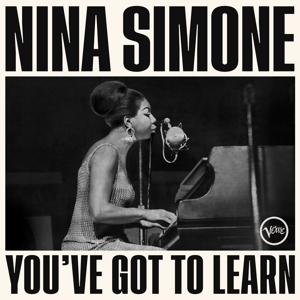 And she included I Loves You Porgy delivered with heartbreaking simplicity.
And she included I Loves You Porgy delivered with heartbreaking simplicity.
Mississippi Goddamn is there too but she closed with a moving rendition of Bart Howards' romantic Music For Lovers.
Simone might have often been uncompromising but she still knew how to bring the audience into her world. As the decade wore on and militant tendencies rose throughout black – and to some extent white – America she would be less so.
But 20 years after her death, 60 years on from the March on Washington and in the time of Black Lives Matter, the mercurial Nina Simone remains as relevant, compelling and sometimes as trenchant as she did that day in Newport.
.
You can hear this album at Spotify here





post a comment